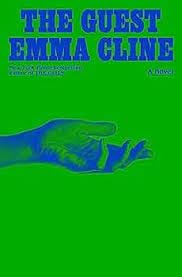“A man tanned to the color of expensive luggage let out a yawn, a young mother watched her children run back and forth to the waterline.”
A reader begins a novel like an introvert embarking on a blind date. She wants to fall in love, for this to be the beginning of a joyous conversation that will carry on for the rest of her life, but she also wants, with perhaps equal fervor, to go home. Because the first pages of a novel are, for the reader (to say nothing of the writer), a kind of suffering. She doesn’t know who anyone is, she doesn’t know what the writer is talking about; self-consciousness (heightened by an awareness of the writer’s self-consciousness) becomes oppressive.
So the writer has at most three pages to deliver something promising. It can be something small — a turn of phrase, an insight, a line of dialog. But it must be enough to convey to the anxious reader: I know what I’m doing here. We understand each other.
When I’m the anxious reader, quite often the crucial gesture is a metaphor. Proust comparing his just-awakened narrator to a caveman. Zadie Smith comparing someone’s sudden smile to a fat man walking through swing doors. Writers seem to me most nakedly themselves in their metaphors — there the writer is forced, for half a sentence a least, to rummage around in the idiosyncratically stocked pantry of her unconscious mind, to cook from what’s on hand.
The best metaphor I’ve come across lately — the best instance of a writer using a bit of gaudy excellence to encourage the jumpy reader to settle in and relax — is in Emma Cline’s The Guest. It comes on the very first page; we know hardly anything at this point, except that a woman named Alex is on a beach in August.
“A man tanned to the color of expensive luggage let out a yawn, a young mother watched her children run back and forth to the waterline.”
It is the expensive luggage of course that gets me. The hilarious precision of the color-matching. The sneaky capacity of that expensive luggage to carry more information than it looks as if it should be able to: we’re in a world, the image tells us, saturated with wealth, and that wealth is going to be shown from angles of unflattering intimacy.
I even love how Cline does not, as the writing books would advise her to do, save the best bit of her sentence for the end. Instead she tucks it unassumingly into the middle, before a rigorously straight-faced description of a mother watching her children. This is the behavior of a writer sitting on a brimming trunk of goodies.
And in fact Cline is. As I read I dog-eared every page on which I came across something excellent and by the end my book looked like it had been read by a touchingly persistent narcoleptic.
To pick almost at random:
“The women she passed on the sidewalks looked like mothers and daughters… They were dressed to invoke the wives they either already were or would one day become, future domestic totems.”
Or this:
“Somewhere on the property, she heard someone operating a leaf blower, then the sound of a lawnmower… So much effort and noise required to cultivate this landscape, a landscape meant to invoke peace and quiet. The appearance of calm demanded an endless campaign of violent intervention.”
This is the kind of noticing — mean, pithy, perceptive — we do in the privacy of our minds, or that we would do, if were sharper and wittier and less distracted. The Guest is set during a single week of summer in the Hamptons (Alex, an interloper, is the locus of all this fine seeing), but it’s very much to Cline’s credit that its setting is far down the list of reasons for the book’s being an ideal summer read.
There’s a notion that a reader’s standards slip when the temperature climbs. They don’t — or anyway mine don’t. But I do crave different preparations of excellence, just as I might, in August, crave a slice of good tomato on crusty bread rather than a long-simmered sauce on pasta. I want simpler sentences, less frenetic plots, more condensed timelines (think of The Great Gatsby or Goodbye, Columbus, with their strict adherence to single summers in single settings).
The Guest does this sun-bleached, pool-wrinkled lineage proud. You’ll settle into it with all the ordinary first-date jitters (Is it really worth buying in hardcover? What if I don’t care about the Hamptons?). You won’t stand up until the restaurant is turning off its lights.




The touchingly persistent narcoleptic. Ha! What an image.
Hi Ben. Start with the Maths Tutor in the aforementioned New Yorker issue. I am just starting her latest collection of short stories called After the Funeral. It is stunningly good. I have a hunch you’ll “get” her immediately.
Happy discovery!